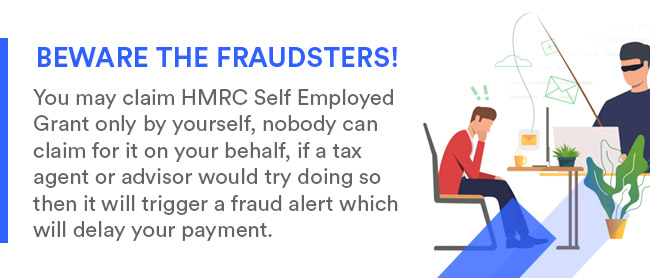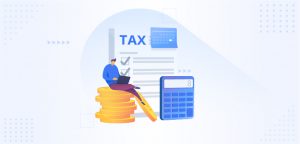
During the 2021 Budget announcement, The Chancellor revealed more details about the fourth and fifth self-employment grants. As ministers had come under fire for excluding self-employed workers from the Job retention Scheme, the grant enables self-employed individuals whose businesses and profits are adversely affected by the pandemic to seek compensation from the government. Self-employed workers which included builders, hairdressers, cab drivers, childminders, and café/bar owners have been informed that if they do not get urgent assistance, they will lose their livelihoods.
Mr. Sunak revealed more details about the fourth self-employment grant during his announcement as there have already been three payments made. A fourth SEISS grant will be available from April 2021 for a claim on the government's website, which will cover the months of February, March, and April.
- Workers who meet the criteria can claim 80% of average monthly profits capped at £2,500.
- The Chancellor has announced the availability of a fifth payment, which will be available for claims beginning in late July and will span the time from May to July. Mr. Sunak suggested that the assistance would be cut down significantly with this installment, with the full 80% grant going to individuals whose turnover had declined by 30% or more depending on the change in turnover.
1. Am I eligible for a self-employment grant?
- You must be a self-employed individual or a member of a partnership to be eligible for the fourth grant. Self-employed workers had to have traded in both 2018 to 2019 and 2019 to 2020 to be eligible for the previous three grants.
- Significantly reduced in profit: Most of them who applied for the third grant would have encountered a recent or ongoing effect from coronavirus between 1 November 2020 and 29 January 2021, which they realistically expected would result in a significant reduction in profit. It should be noted that this evaluation is forward-looking, causing the position to be considered over the whole basis period (rather than only the period from 1 November 2020 to 29 January 2021). HMRC has not provided any specific guidelines outlining their view of the terms "reasonable belief" or "significant reduction." Instead, they suggest that you must make an honest assessment and that HMRC cannot make this decision for you because it needs individual and broader business circumstances to be considered. HMRC advice confirms that you are not required to consider any previous coronavirus scheme support payments before determining whether you really think you will incur a substantial decrease in trading profits.
- The intention of continuing trading: You have had to declare that you would like to trade, or that you previously traded but are no longer able to do so due to the pandemic.
- Self-Assessment Tax Return Submission: When the scheme was first introduced, the newly self-employed were ineligible because they had not filed a 2019/20 tax return. Sunak added’ ’However, since the tax return deadline has now expired, I can now declare that, if they filed a tax return by midnight last night, over 600,000 more individuals, many of whom just became self-employed last year, are now entitled to receive the fourth and fifth grants.”
This is because the government is now authorising staff to apply their self-assessment tax returns for 2019-2020 and 2020-2021 as proof of earnings.
At the budget, it was confirmed that the fourth SEISS grant will be set at 80% of 3 months’ average trading profits, paid out in a single installment, capped at £7,500. Applicants must also be able to show that they wish to continue trading or offering a service after the assistance expires in April.
You will need the following documents to apply:
- Self-Assessment Unique Taxpayer Reference (UTR)
- National Insurance number
- Government Gateway user ID and password
- UK bank details including account number, sort code, name on the account, and address linked to the account.
- Only provide bank account details where a Bacs (it is a type of bank transfer) payment can be accepted.
You might also be asked questions about your passport, driver's license, or details on your credit report.

2. I run a family business am I eligible for a SEISS Grant?
Those running family firms and those of personal service companies (PSCs) are questioning whether they can claim under the scheme. These individuals frequently earn a modest income and retain the rest of their earnings as dividends. Although certain individuals believe themselves to be effectively self-employed, they are not legitimately self-employed and are thus ineligible for the self-employed scheme.
3. Is a member of a partnership eligible for SEISS and how?
If you are a partner in a partnership, your eligibility will be determined by your share of the partnership's trading income. Trading profits as a partner would effectively be the sum shown in the tax report as "the share of the net taxable income from the partnership's company," after including back any losses brought forward from previous years. Depending on the profit-sharing ratios of a partnership, this could result in some members being considered for the scheme and others not.
About the Fifth SEISS grant
The sum of the fifth grant will be assessed by how much your turnover was reduced from April 2020 to April 2021. The fifth grant will be worth:
- 80% of 3 months’ average trading profits, capped at £7,500, for those with a turnover reduction of 30% or more.
- The sum of the fifth grant will be assessed by how much your turnover was reduced from April 2020 to April 2021. The fifth grant will be worth:
Click here if you need more information regarding the Support for businesses and self-employed people during coronavirus.












